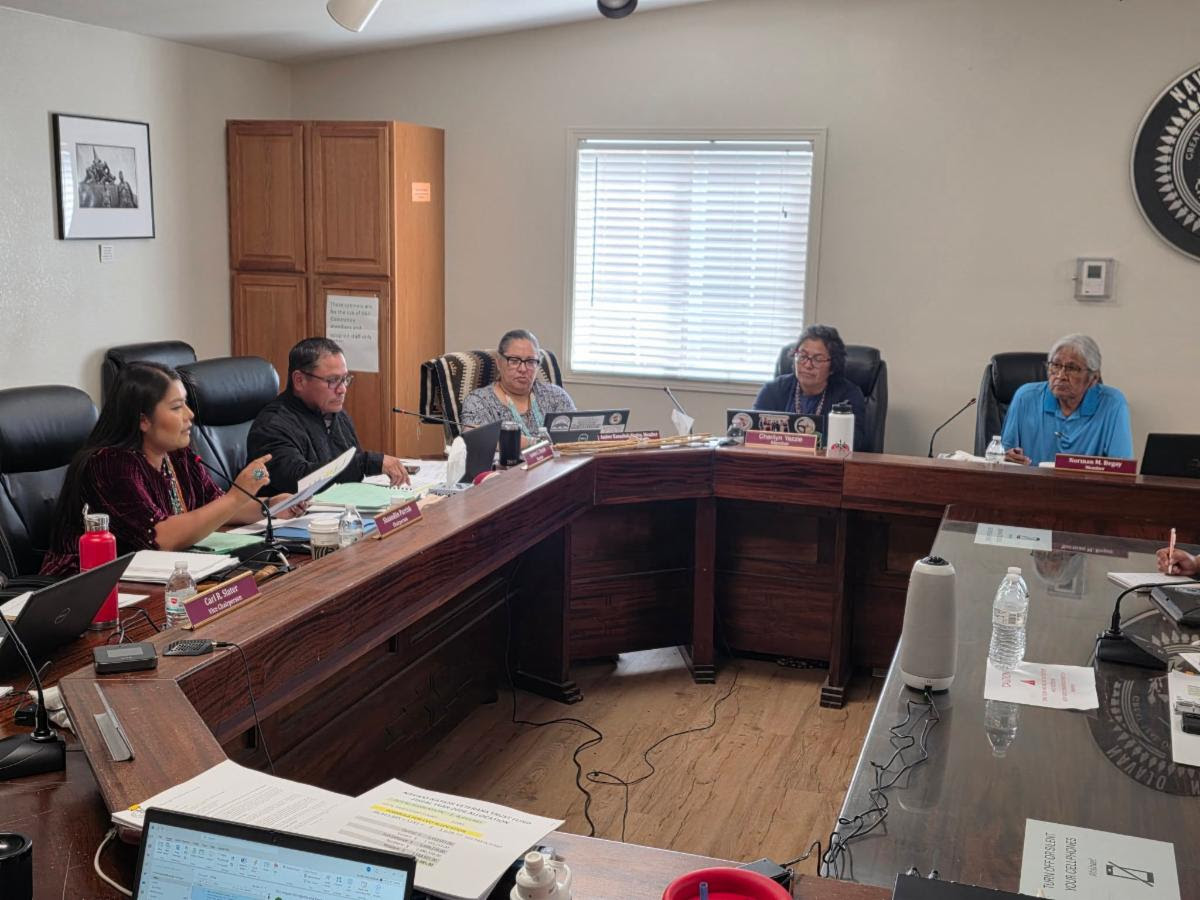
- Details
- By Native News Online Staff
On August 26, the Budget and Finance Committee (BFC) received a formal report from the Office of Legislative Services (OLS) and the Office of Management and Budget (OMB) during the FY2026 Oversight Budget Hearings. The report outlined critical amendments to the Navajo Nation’s Fiscal Year 2026 Comprehensive Budget.
These targeted changes were made to align government spending with priorities voiced by Diné citizens during public hearings held across all five agencies and three states within the Navajo Nation.
According to the report, the BFC reallocated a total of $15,734,802 in General Funds. This effort preserved 236 government jobs and addressed a $2.2 million shortfall affecting Navajo Nation Chapters—an issue that stemmed from internal planning amounts set by the executive branch. The reallocated funds were directed toward underfunded personnel costs, fringe benefits, insurance, and essential operational needs.
The amendments were necessary after several divisions failed to follow key sections of the FY2026 Budget Instructions Manual, which emphasized the prioritization of personnel funding. Although President Nygren issued a memorandum on May 14, 2025, reinforcing this policy to executive branch programs, many budget submissions did not comply, resulting in imbalances that required corrective action by the BFC.
Key reallocations included:
-
$2,173,559 overallocated by the Division of Public Safety based on the executive branch planning base
-
$2,177,431 internally reduced from Navajo Nation Chapters
-
$2,754,941 used to transition former Fiscal Recovery Fund employees at the Department of Justice into Navajo Nation General Fund positions
-
$601,407 internally reduced from the Office of Legislative Counsel
Initial planning base amounts were set at $102 million for the executive branch, $16 million for the legislative branch, and $14 million for the judicial branch. Following the BFC’s amendments, the executive branch received an additional $8,650,000 to correct funding gaps.
“Every decision we made during the oversight hearings was informed by what we heard in the chapters,” said BFC Vice Chair Carl Slater. “These reallocations do more than shift numbers; they ensure that families have access to public safety, youth employment, and victim services. We prioritized people over bureaucracy.”
The reallocation process did not increase total government spending. Instead, it redistributed existing funds to stabilize essential services. Divisions such as Human Services, Health, Public Safety, and Natural Resources had their budgets adjusted to ensure program continuity and prevent service disruptions.
Each revised budget was formally approved through BFC resolutions, including:
-
BFJY-34-25 (Human Resources)
-
BFJY-38-25 (Natural Resources)
-
BFJY-49-25 (Public Safety)
-
BFJY-51-25 (Health)
These actions reflected both the committee’s legal obligations and the trust placed in them by the Navajo people during the budget process.
In total, the $15.7 million reallocation effort safeguarded government operations, preserved jobs, and addressed critical funding shortfalls—all without increasing expenditures. The BFC approved the report with a unanimous vote of five in favor, signaling strong consensus around a community-first approach to budgeting.
The full report will be published on the Budget and Finance Committee page on the Navajo Nation Council’s official website.
On Friday, August 29, the Naabik’íyáti’ Committee advanced Legislation No. 0195-25, approving the FY2026 Comprehensive Budget with a unanimous vote of 15-0. The legislation now moves to the full 25th Navajo Nation Council for final consideration.
More Stories Like This
Native News Weekly (August 25, 2024): D.C. BriefsNavajo Nation Mourns the Passing of Former Vice President Rex Lee Jim
Deb Haaland Earns Endorsement From Communications Workers of America Local 7076
University Soccer Standout Leads by Example
Two Native Americans Named to Democratic Congressional Campaign Committee's“Red to Blue” Program
Help us defend tribal sovereignty.
At Native News Online, our mission is rooted in telling the stories that strengthen sovereignty and uplift Indigenous voices — not just at year’s end, but every single day.
Because of your generosity last year, we were able to keep our reporters on the ground in tribal communities, at national gatherings and in the halls of Congress — covering the issues that matter most to Indian Country: sovereignty, culture, education, health and economic opportunity.
That support sustained us through a tough year in 2025. Now, as we look to the year ahead, we need your help right now to ensure warrior journalism remains strong — reporting that defends tribal sovereignty, amplifies Native truth, and holds power accountable.
 The stakes couldn't be higher. Your support keeps Native voices heard, Native stories told and Native sovereignty defended.
The stakes couldn't be higher. Your support keeps Native voices heard, Native stories told and Native sovereignty defended.
Stand with Warrior Journalism today.
Levi Rickert (Potawatomi), Editor & Publisher


